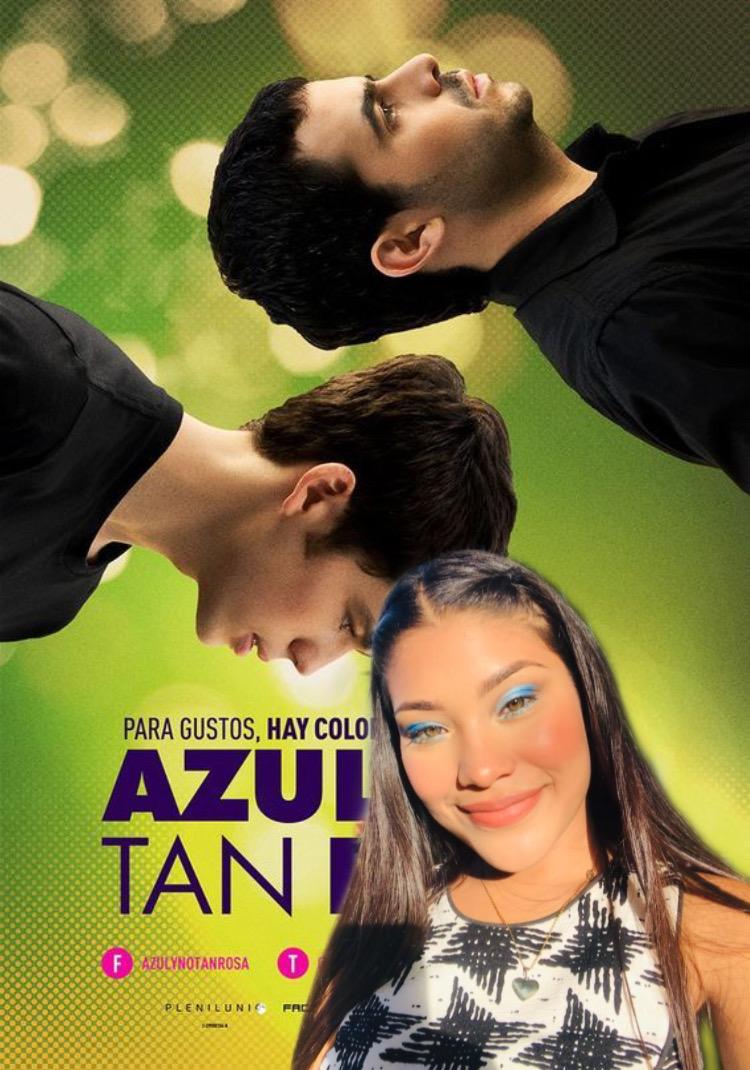
Hola, buenos días colmena feliz Viernes Santo, espero que hoy sea un día genial para todos, está es mi participación en el concurso de OCD Community Boost Contest #5: Highlighting Movies & TV Shows en la comunidad de Movies & TV Shows dónde responderé la siguiente pregunta:
Hello, good morning hive happy Good Friday, I hope today is a great day for everyone, this is my participation in the contest [OCD Community Boost Contest # 5: Highlighting Movies & TV Shows] in the Movies & TV Shows community where will i answer the next question.
¿Cuál es la mejor película de tu país y por qué?
What is the best film in your country and why?
AZUL Y NO TAN ROSA, PARA GUSTOS HAY COLORES/ BLUE AND NOT SO PINK, TO LIKE THERE ARE COLORS
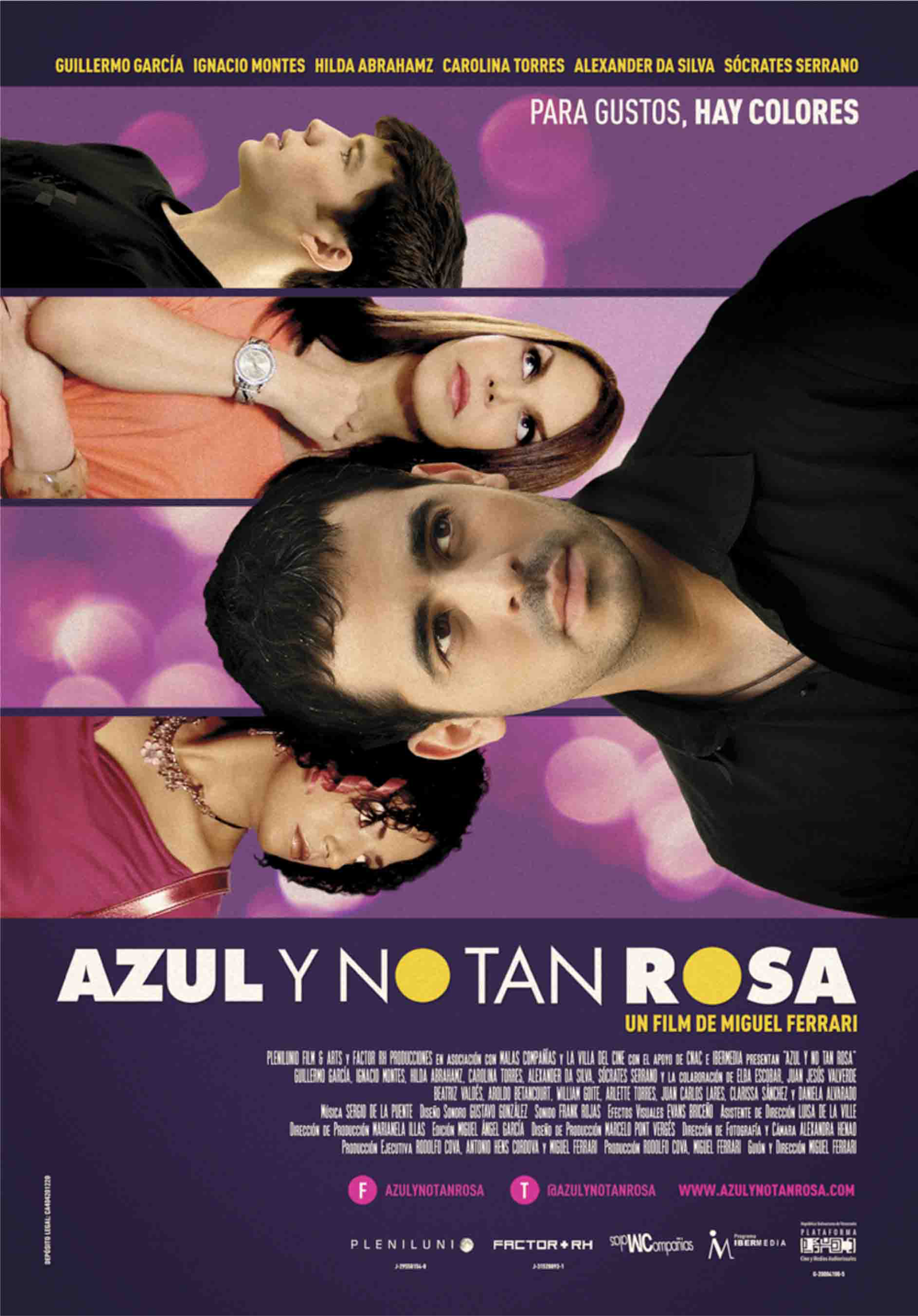
La película azul y no tan rosada se sitúa a medio camino entre el drama y la comedia para abordar abiertamente temas controvertidos de la actualidad como la homosexualidad, la transexualidad y la violencia de género. En mi opinión personal, es una de las mejores películas venezolanas con una coproducción española, de hecho fue la primera en ganar el premio Goya a la mejor película hispanoamericana de 2013 dirigida por Miguel Ferrari. La película cuenta la historia de Diego Martínez, un hombre homosexual que trabaja como fotógrafo de arte y moda, teniendo mucho éxito. A los 15 años tuvo relaciones sexuales con Valentina, una amiga del colegio, quien quedó en la cinta de un chico llamado Armando, desde entonces se separaron, Valentina emigró a otro país en busca de un mejor futuro para ambos y Diego nunca fue un buen padre, llamaba muy poco para saber de Armando.
The blue and not-so-pink film sits halfway between drama and comedy to openly address current controversial issues such as homosexuality, transsexuality, and gender-based violence. In my personal opinion, it is one of the best Venezuelan films with a Spanish co-production, in fact it was the first to win the Goya award for the best Spanish-American film of 2013 directed by Miguel Ferrari. The film tells the story of Diego Martínez, a homosexual man who works as an art and fashion photographer, being very successful. At the age of 15 he had sex with Valentina, a friend from school, who remained in the tape of a boy named Armando, since then they separated, Valentina emigrated to another country in search of a better future for both of them and Diego was never a good Father, I called very little to hear from Armando.

Diego tiene pareja, Fabrizio, un reconocido obstetra-ginecólogo, ellos formalizaron la relación y se mudaron juntos. Un día aparentemente normal, ocurre un terrible incidente que altera por completo su ritmo de vida, su pareja sentimental, Fabrizio, es golpeado por un grupo de homofóbicos, y las consecuencias del atentado son terribles, y Fabrizio entra en coma muriendo más tarde. Tras el traumático incidente Diego conocerá a Armando, ha viajado de Madrid a Caracas para rehacer su vida con un padre al que no conoce, y ambos tendrán que acostumbrarse, lo que no fue tan fácil.
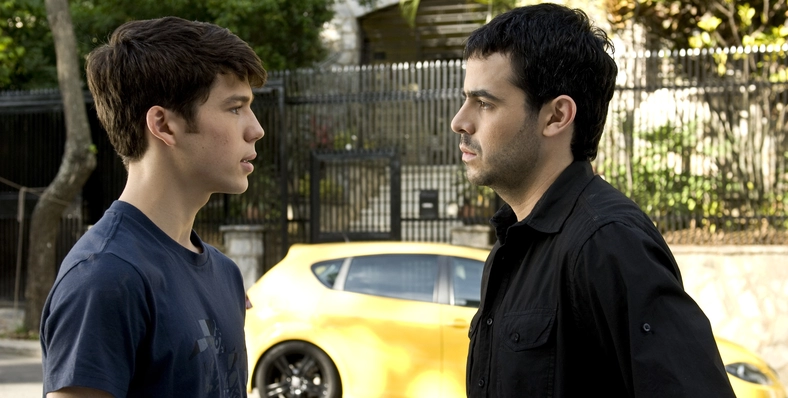
Diego has a partner, Fabrizio, a renowned obstetrician-gynecologist, they formalized the relationship and moved in together. On an apparently normal day, a terrible incident occurs that completely alters his rhythm of life, his sentimental partner, Fabrizio, is beaten by a group of homophobes, and the consequences of the attack are terrible, and Fabrizio falls into a coma, dying later. After the traumatic incident Diego will meet Armando, he has traveled from Madrid to Caracas to rebuild his life with a father he does not know, and both will have to get used to it, which was not so easy.

Por si fuera poco, Diego ahora no solo tendrá que intentar adaptarse al hecho de que su pareja muere, sino que también se verá obligado a asumir el papel de padre de un joven adolescente de casi 16 años lleno de complejos, bajo autoestima y algo inseguro de sí mismo. Armando aprende a aceptarse como es y a amar y aceptar a su padre homosexual, respetar sus decisiones, gustos y estilo de vida sin ser tan hostil. Por otro lado, Diego muestra su lado humano y luchador cuando apoya a su asistente Perla quien es víctima de violencia doméstica por parte de su novio, así como a Delirio, a quien apoya acudiendo a las presentaciones de su show de travestis para recaudar fondos para su coreografía. La película culmina con el regreso de Armando a Madrid después de haber permanecido varios meses en Caracas donde se restablece la relación padre e hijo.
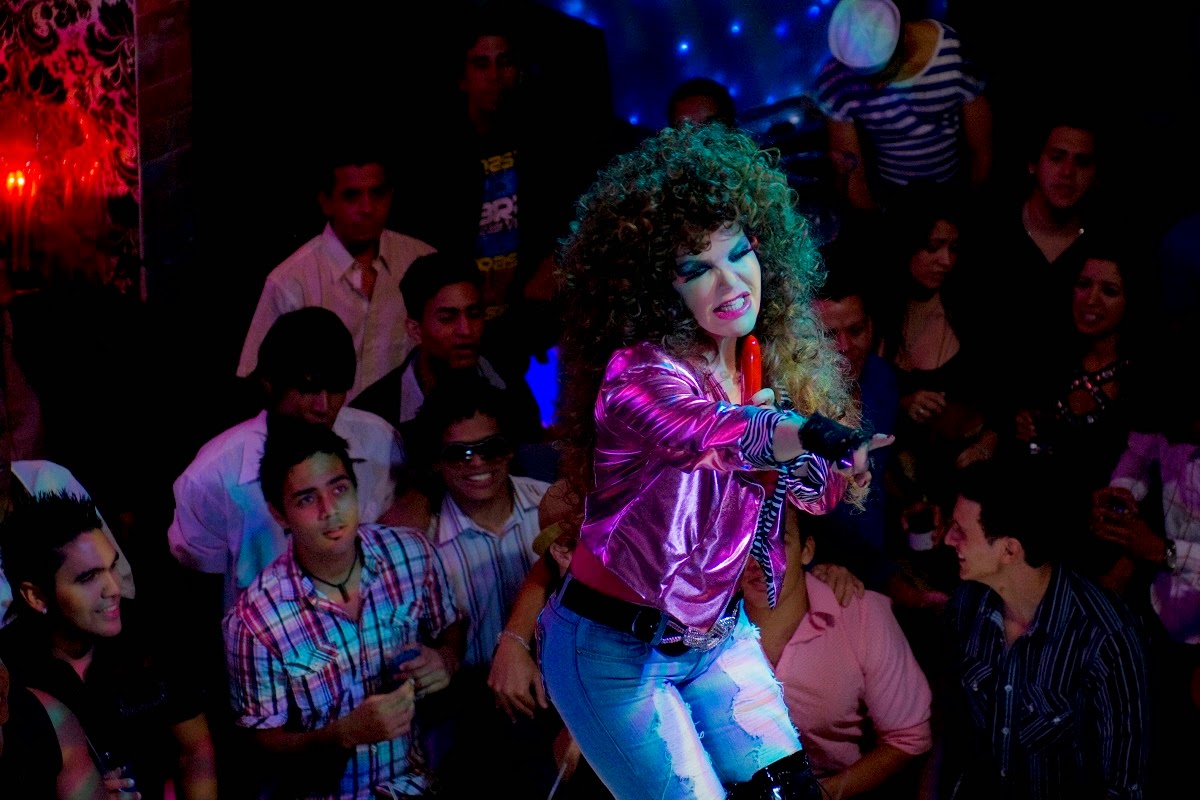
As if that were not enough, Diego now will not only have to try to adapt to the fact that his partner dies, but will also be forced to assume the role of father of a young teenager of almost 16 years full of complexes, low self-esteem and somewhat insecure of himself. Armando learns to accept himself as he is and to love and accept his homosexual father, respect his decisions, tastes and lifestyle without being so hostile. On the other hand, Diego shows his human and fighter side when he supports his assistant Perla who is a victim of domestic violence by her boyfriend, as well as Delirio, whom he supports by attending the presentations of his transvestite show to raise funds for his choreography. The film culminates with Armando's return to Madrid after spending several months in Caracas where the father and son relationship is reestablished.

Esta película es muy bonita, te hará reír, llorar y razonar. Es una invitación al respeto, aceptación y tolerancia con los demás, también a la NO discriminación por condición social, religión, orientación sexual, origen étnico y paternidad prematura.
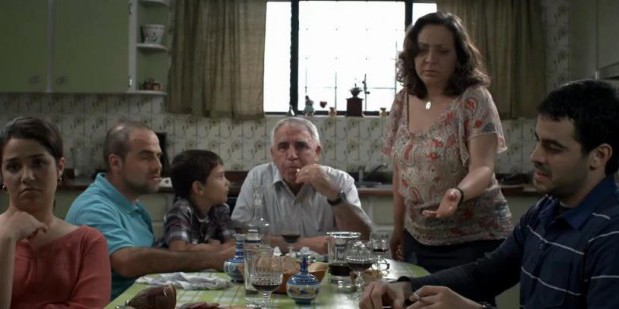
This movie is very beautiful, it will make you laugh, cry and reason. It is an invitation to respect, acceptance and tolerance with others, also to NOT discrimination due to social condition, religion, sexual orientation, ethnic origin and premature fatherhood.
El amor es un sentimiento universal que es inherente al ser humano. El amor no tiene sexo, no tiene género, sólo es un sentimiento.
Love is a universal feeling that is inherent to the human being. Love has no sex, it has no gender, it is only a feeling.
Gracias por visitar mi blog
Thank you for visiting my blog
Hola me encanto lanarrativa de tu pelicula Venezolana es muy reflexiva es humanizada a la realidad que se vive no solo en nuestro pais sino en cualquier lugar del mundo, gracias por compartir